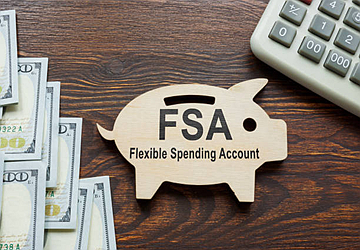Ever gotten your tax refund and wondered, "What's the best way to use this money?
In 2022, the IRS refunded roughly $292 billion to more than 96 million people, with an average refund of $3,039. That's a substantial sum.
But here's the big question: How do you ensure this money doesn’t just slip away on a whim?
Such uncertainty can lead to impulsive decisions and missed opportunities. But why leave such a crucial financial decision to chance? After all, this isn’t just extra cash; it’s a portion of your hard-earned money that you overpaid to the government.
So that’s why we’re here to illuminate 10 Simple Tips to Smartly Use Your Tax Refund. Let’s get started!
Unlocking the Potential of Your Tax Refund
Before we begin, understand this: your tax refund represents a significant sum of money you've overpaid to the government over the year. It's your money returning to you. Hence, it's vital to know the best ways to use it. These ten tips will provide the insights you need.
1. Build or Boost an Emergency Fund
An emergency fund acts as a safety net for unexpected expenses. By dedicating a portion of your refund to this fund, you're essentially insuring yourself against unforeseen financial challenges.
It offers peace of mind and reduces financial stress. Plus, having an emergency fund can prevent you from accumulating unwanted debt in trying times.
Aim to save at least three to six months' worth of expenses. Make regular contributions, however small, to steadily grow this fund.
Key Takeaways:
● An emergency fund is a must-have.
● Prioritize it before luxury expenditures.
● Regular contributions make a significant difference.

2. Reduce High-Interest Debts
High-interest debts, such as credit card balances, can be a drain on your finances. Using your refund to minimize or eliminate these debts can be a wise move.
It leads to long-term savings, as you'll be paying less interest over time. It can also improve your credit score.
Target the highest-interest debts first while maintaining minimum payments on others.
Key Takeaways:
● Debts can hamper financial growth.
● Prioritize by interest rates.
● Stay disciplined to avoid future debts.
3. Invest in Retirement Accounts
It's never too early to think about retirement. By placing a part of your refund into an IRA or 401(k), you're investing in your future self.
It offers tax benefits and potential compound interest growth over time. Diversify your investments and consider speaking to a financial advisor to choose the best plan.
Key Takeaways:
● Retirement planning is essential.
● Compound interest is your friend.
● Seek expert advice if unsure.
4. Further Your Education
Consider using your refund to enroll in a course or workshop that enhances your skills or broadens your knowledge.
It can lead to career advancements, higher pay, or personal development. Choose courses that align with your career or personal growth goals.
Key Takeaways:
● Education pays back in multiples.
● Always strive for growth.
● Skill diversification is valuable.
5. Refinance Your Home
If mortgage rates have dropped, using your refund to cover the refinancing costs could save you money over time.
Lower monthly payments and potentially saving thousands over the life of the loan. Shop around for the best refinancing deals and understand all associated fees.
Key Takeaways:
● Mortgage rates fluctuate.
● A lower rate can mean huge savings.
● Be informed about refinancing options.

6. Contribute to Health Savings Accounts (HSAs) or FSAs
Medical emergencies can be expensive. Investing in health accounts can give you financial and health security.
It offers tax benefits and ensures you’re covered during medical needs. Ensure you know the contribution limits and only use these funds for qualified medical expenses.
Key Takeaways:
● Health is wealth.
● Tax benefits are substantial.
● Only use for qualified expenses.
7. Plan for Major Life Events
Whether it’s a wedding, buying a house, or starting a family, big life events come with big price tags.
Being financially prepared can make these events less stressful and more enjoyable. Estimate costs early and sets aside funds in a dedicated savings account.
Key Takeaways:
● Major events need major planning.
● Early planning avoids financial surprises.
● Financial preparedness enhances enjoyment.
8. Support Charities
Making charitable contributions isn't just morally good; it can also offer tax deductions for the next year.
Provides personal satisfaction and potential tax write-offs. Donate to IRS-recognized charities and keep detailed records.
Key Takeaways:
● Giving back benefits everyone.
● Potential tax deductions available.
● Documentation is crucial.
9. Upgrade Your Home
Consider home improvements that can increase its value or reduce future expenses. It will give you the benefits of higher resale value and improve your living experience.
Focus on projects with a high return on investment, like insulation or energy-efficient appliances.
Key Takeaways:
● Smart upgrades pay off.
● Prioritize energy-saving changes.
● Investments in home comfort matter.
10. Start or Boost a Side Business
If you've ever considered starting a side gig or have one already, using your refund to elevate it can be transformative.
Invest in essential equipment, advertising, or courses that can help your business grow.
Key Takeaways:
● Side gigs diversify income.
● The initial investment is crucial.
● Continuous learning amplifies growth.
Conclusion
Your tax refund, while a delightful annual bonus, is also a pivotal moment for financial decision-making. Every tip listed above aims at one thing: securing your financial well-being.
Adopting even a few of these strategies can make a significant difference in the long run. It’s time to see your tax refund as an opportunity, not just a windfall.
Take charge, invest smartly, and pave the way for a brighter financial future!


